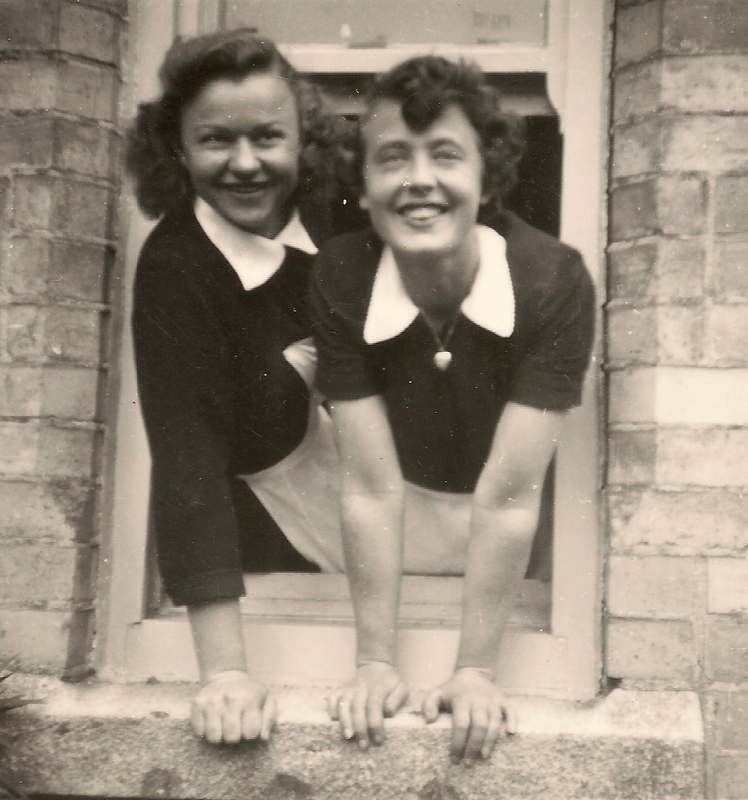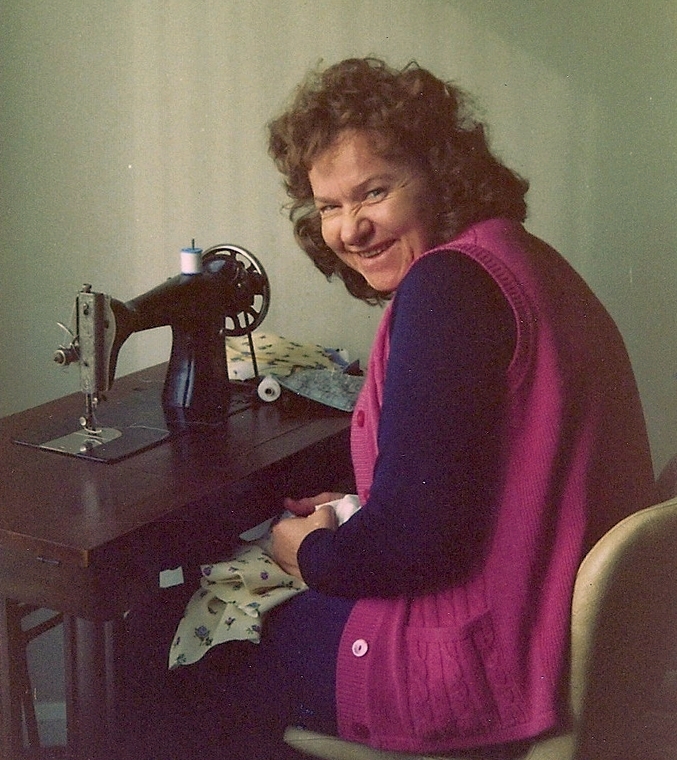Happy Bursday, Mum
My mother would have been 90 today.
Kazimiera Nieścior never did get her tongue around the English “th” so it was always “bursday” or “Tursday.” And good “mornink” or good “moaning.”

My mother was charming. She told me how it worked for her when she got her first job in England, as a waitress at St Ann’s hotel in Newquay. She was 14. She could hardly speak a word of English, and said she managed by smiling and using the few words she knew.
After eight years in limbo, she could finally smile.
I would have liked to say that she “left school” but she didn’t have the privilege of what could have been called schooling. She was six years and three days old on a freezing early morning in 1940 when Soviet soldiers banged on the door of their little house in Smigłowo, a settlement of 50 houses—25 on each side of one road—just north of Zaleszczyki near Poland’s then southern border with Romania.
I would never have found out where the family went had it not been for a serendipitous letter that I wrote to the KARTA Foundation in 2010. It was one of those leads one tries without much hope. I was wondering why my father’s family was listed as being in an NKVD forced-labour facility yet my mother’s not.
It turned out that the NKVD (Stalin’s Secret Police), responsible for the forced labour facilities scattered throughout the USSR to which they sent around 900,000 Polish civilians in 1940 and 1941, either did not publish the lists of people sent to geographical Siberia, or those lists were lost. But the woman from KARTA said that my maternal grandfather, son of Józef (yes) born 1908 (yes) was deported with his children (there seems to be no mention of his wife, who was with them) to Taishet near Irkutsk.
Taishet is near Lake Baikal. I discovered that before and after the Polish families were there, it was classified as a GULag.
In Poland, children start school aged seven. In Taishet, who knows what schooling she received? She was eight when Stalin granted ‘amnesty’ to Poles in similar facilities throughout the USSR, and she, her parents, her brothers, and younger sister managed to get to Uzbekistan, where her father enlisted into the Polish army.
I still struggle to figure out how authorities worked out what would happen to the wives and children left behind. I know from reading Wladyslaw Anders’ book An Army in Exile, that Stalin kept provisions to civilians scarce, and I know from speaking with people that Uzbekistan was then a place with no food, no water, no shelter, and no jobs. My mother and her siblings became ill, and her little sister died.
My grandmother took my eight-year-old mother and her six-year-old brother Janek to an orphanage, and gave my mother the instruction to “look after” her brother. Until they were reunited two years later, my mother took looking after her brother seriously. It was made tougher in the orphanage in Tengeru, which divided the boys and girls. One day, my mother found Janek in the mortuary, supposedly dead from malaria. She shook him and he stirred from his unconsciousness.
She was 10, and I doubt whether there was anyone to check her reading. Although the authorities tried, they struggled to school the children of the more than 20,000 Polish refugees in the 22 refugee camps along eastern and southern Africa. In Tengeru, there were at least 2,000 school-aged children.
Lucjan Krokilowski, in his book Stolen Childhood: “The large concentration of school-age children in the African Polish camps required a proportionately large team of professional teachers and educators… but they were not available: younger male teachers were at the front [in 1942–1944], and there were few qualified females.”
In 1944, mother and Janek were reunited with their mother and older brother in a Polish refugee camp in Rusape, in then southern Rhodesia. Soon after, my mother heard that her father had been killed in northern France.
My mother was a tomboy, not surprising for someone who had lived most of her childhood outside. From what I could gather, Rusape was a paradise for the children. Fr Krolikowski on the attractions of living in the African bush: “… nor did the casual construction of the [school] buildings adequately separate the students from the ever fascinating surroundings outside.”
My mother was a disorganised housewife but a meticulous bookkeeper of the engineering business my father started in South Africa. I once said I’d give her the four cents she had been hunting for in the books, but she said no, that was not the point: she had to find her mistake. Her spelling may have been inventive but her accounts were always perfect—to the last cent.
My smell of childhood is burnt potatoes. My mother had no affinity with the kitchen. Her idea of making dinner would start with putting on some potatoes, then going into the garden. It frustrated my father, and taught us to cook for our own needs. Later, I understood why: she had never had a ‘normal’ home life. On the little Smigłowo farm, her mother helped her father plant up the new land whenever she could; in Taishet, the NKVD ruled, and they were lucky to get bread in their hands, never mind sitting around a table to eat; in the Polish orphanages, food arrived, as it did in the Tengeru and Rusape refugee camps, and at St Ann’s.

My mother loved gardening. She was never afraid of bees—or the dark—but had a fear of even the smallest frog. She sewed like an angel. The refugee camps may not have taught children how to cook, and may not have had qualified academic teachers, but the women taught the girls Polish handcrafts.
I remember my mother taking a dressmaking course. She made all our clothes, including coats, and our wedding dresses. She impressed me by the way she could take a piece of fabric, cut it out without a pattern, and hand it to me to sew an outfit for my Sindy doll. Sindy had a coat from the same fabric as mine. My mother taught me how to embroider and crochet, and follow patterns by just looking at the photographs.
For someone without a formal education, she didn’t do too badly.
Happy bursday mum. I miss you.
—Basia
7 February 2024
_______________
Łucjan Krókilowski, OFM Conv., Stolen Childhood, A Saga of Polish War Children, pages 97 & 99, 2001, Authors Choice Press, USA. Translated by Kazimierz J Rozniatkowski in 2001. The original, Skradzione Dziecinstwo, was published in 1983.
To read more about the background to the forced-labour facilities in the USSR, and the Poles’ escape, see: https://polishhistorynewzealand.org/missing-humanity/
If you would like to comment on this post, or any other story, please email editor@polishhistorynewzealand.org/
